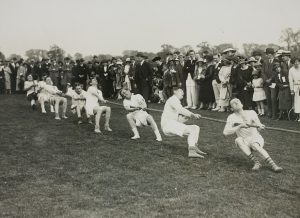If you’ve been hearing about “authentic assessments”, you’ll be aware that the concept is not that new-found. You have probably been assessed “authentically” but just never realised it! For example, if you drive you would have been tested on your ability to drive on the road as part of your practical driving test. Ever taken part in sports day where you had to carry out activities to demonstrate your physical skills. Awarding a medal to an Olympic contestant through a paper-based assessment in their field wouldn’t make proper sense, right? So, how can we apply this thinking in our disciplines? Why are we still assessing our students through traditional approaches likes essays, tests and MCQ’s rather than using more authentic models?
 Authentic assessment can be defined in several ways and focus on learning opportunities that allow students to demonstrate their understanding of the subject through outward facing, applicable, real-world tasks. Using a mixture of traditional and authentic assessments in the classroom can provide students many opportunities to apply their knowledge. They are designed to provide a meaningful learning experience for students and improve the future performance of students by allowing them to apply their knowledge, develop skills and use reasoning to apply their learning. In essence this allows students to develop transferable skills which are vital to workplace scenarios.
Authentic assessment can be defined in several ways and focus on learning opportunities that allow students to demonstrate their understanding of the subject through outward facing, applicable, real-world tasks. Using a mixture of traditional and authentic assessments in the classroom can provide students many opportunities to apply their knowledge. They are designed to provide a meaningful learning experience for students and improve the future performance of students by allowing them to apply their knowledge, develop skills and use reasoning to apply their learning. In essence this allows students to develop transferable skills which are vital to workplace scenarios.
The higher education sector is seeing significant changes in assessment. Assessment is a vitally important aspect of the educational process – at its most effective, it is motivating, it shapes learner’s behaviour, and it provides accountability to employers, professional bodies, and other stakeholders. Furthermore, many existing UCL students will not have experienced in-person written exams – some alternatives, asking:
Does it assess what we want?
Is it too much or too little?
Does it occur at the right points?
Is it prone to cheating?
Is it in the right form/format to get the best from learners?
Is it helping to solve grand challenges and benefit them in their future careers?
The concept of authentic assessment may help to focus our thinking in response to these questions. How might we change the focus of assessment? As tempting as it sounds to simply put your essay online, is it time to rethink your assessment? For example, could you get your student to present a business case and pitch it via Teams instead of carrying out a traditional essay? What might be the benefits to law students if they rapped an assessment, or is this a step too far? Can the digital help in this transformation? Should we tailor our existing, more traditional assessments to demonstrate a more meaningful skill-set that helps to develop student attributes and benefit their future career, or if we think this is faddish, create strong arguments for maintaining a traditional approach?
Join us in the assessment conference to discuss and explore these ideas and shape thinking about assessment.